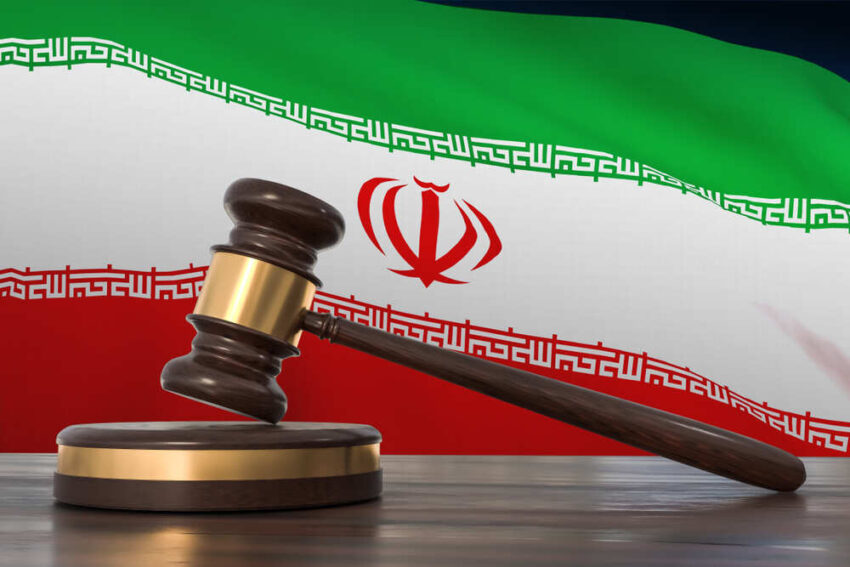Iran’s unending crackdown claims more victims: Are we witnessing a new era of suppression?
Iran’s regime is on a frenzied spree of repression, with accusations of ties to Israel leading to over 700 arrests and six executions. The contested evidence presented by state media, lacking external validation, raises doubts about Iran’s transparency and intent. Executions proceed at breakneck speed, and Amnesty International condemns the trials’ unfairness, which rely heavily on coerced confessions. Observers suggest the Iranian government is employing its historic playbook of fear and intimidation to silence dissent under the guise of national security.
A Wave of Arrests and Executions
Following a ceasefire, Iran has arrested more than 700 individuals accused of having connections to Israel. Iranian authorities executed three men, Idris Ali, Azad Shojai, and Rasoul Ahmad Rasoul, under accusations of equipment smuggling aiding assassination plots. Iranian official media claims these men worked with Israel’s Mossad, yet what truly stands out is the dubious presentation of ‘Israeli’ weapons—a claim that external experts find severely lacking in credibility. These occurrences fit into Iran’s notorious execution trend, second only to China.
The broader context involves Israeli strikes initiated on June 13 targeting Iran’s military and nuclear facilities, followed by aggressive responses, including Iran launching ballistic missiles at Israel. This escalation has purportedly justified Iran’s harsh internal crackdown—moving beyond foreign threats to silence internal dissent, all under the fabricated guise of national security protection. While the state’s grim agenda continues, confessions aired on state TV bear all marks of coercion.
Contested Intelligence and Questionable Justice
Images shown by Iranian media claiming to depict seized Israeli-made weapons have been criticized as staged or manipulated. Amnesty International’s Hussein Baoumi denounces these legal proceedings, praising neither process nor fairness. With trials barely lasting ten minutes, doubts multiply about Iran’s judicial integrity. The regime’s historical deployment of surveillance and accusations to weaken opposition remains a familiar chapter, much to the detriment of any perceived fairness or justice.
“Reports show men in prison jumpsuits confessing that they were recruited as Israeli spies, along with weapons they were supposedly planning to use. Analysts say the confessions are probably coerced, and an analysis of the images by the FRANCE 24 Observers team found no evidence of any Israeli-made weapons among the supposed seizures” – France 24 – Source
The recent sweeping detentions targeted various communities, with reports of detained rabbis and religious leaders outlandishly accused of Israeli collusion. Simultaneously, Tehran fears further agitation from Iranian Kurdish and Baluch minorities, opponents long critical of the Shi’ite regime’s discriminatory policies. With added troop deployments along borders, Iran’s efforts appear exhaustive toward fortifying defenses against dissidence rather than seeking resolution through reasoned dialogue.
Suppressing Dissent Under the Guise of Security
Despite hopes among exiled groups for an uprising, Iran’s harsh methods—ranging from mass arrests to suspect trials—have curbed large-scale protests. Revolutionary Guards and paramilitary units maintain an aggressive posture, fostering fear rather than resolution. Amnesty International’s critiques underscore the severe deviation from lawful processes, spotlighting forced confessions as routine practice. Minorities remain on high alert, cautious of triggering any pretext for further repressive measures.
“So far, we have seen reports of the arrest of hundreds of people over alleged accusations of espionage, of cooperation with Israel. We have also seen the execution of at least six men since the 16th of June on similar accusations. To be absolutely clear, these are people that were — had trials that would run into about 10 minutes in front of revolutionary courts that lack any resemblance of fair trials and where the use of forced confessions is quite worried (sic).” – Hussein Baoumi – Source
As Iran extends internal security measures, including random checks and troop deployments, the specter of autocracy looms, sparking widespread unease. While accusations fly high and wild, the essence of due process takes a backseat, demonstrating Iran’s enduring legacy of authoritarian control disguised as nationalistic vigor. Observers warn of this unyielding pattern curbing dissent and silencing any aspirations for change, leaving skeptics questioning the path to peaceful solutions.
Click this link for the original source of this article.
Author: Editor
This content is courtesy of, and owned and copyrighted by, https://libertynewsalerts.com and its author. This content is made available by use of the public RSS feed offered by the host site and is used for educational purposes only. If you are the author or represent the host site and would like this content removed now and in the future, please contact USSANews.com using the email address in the Contact page found in the website menu.








